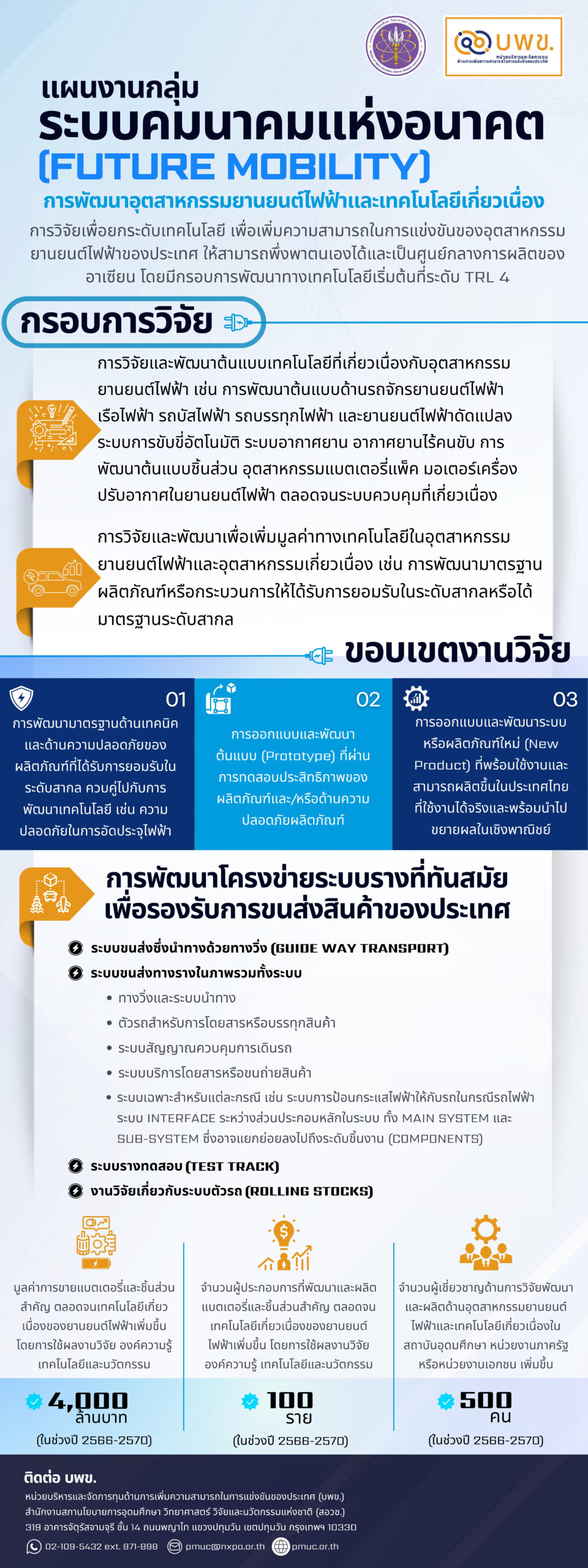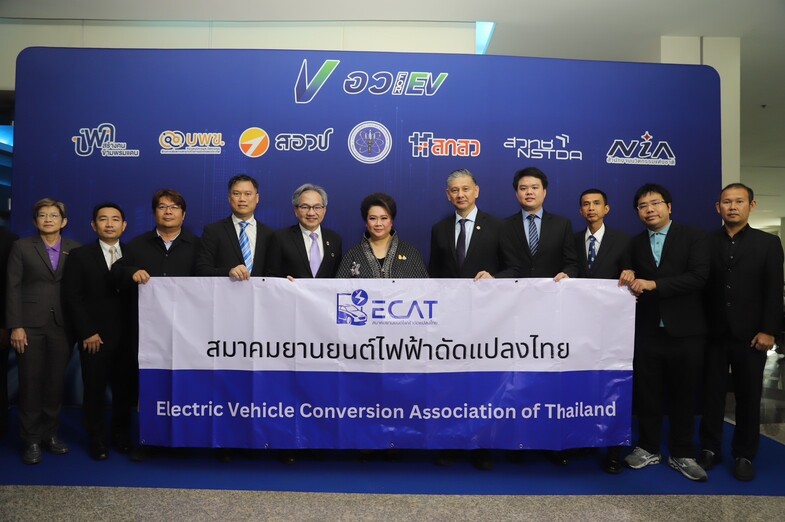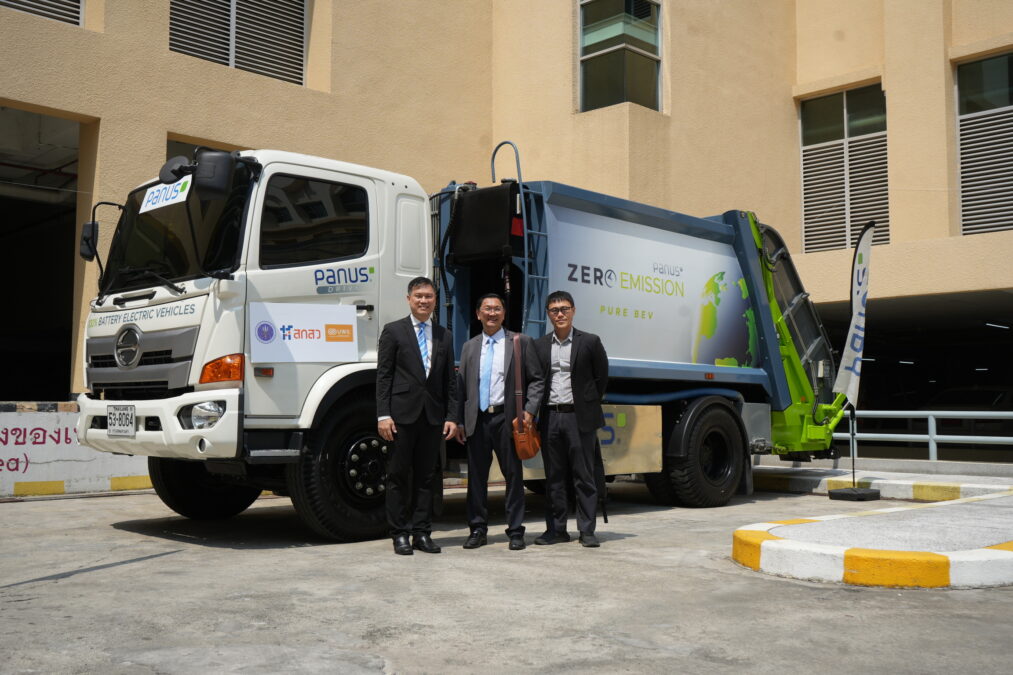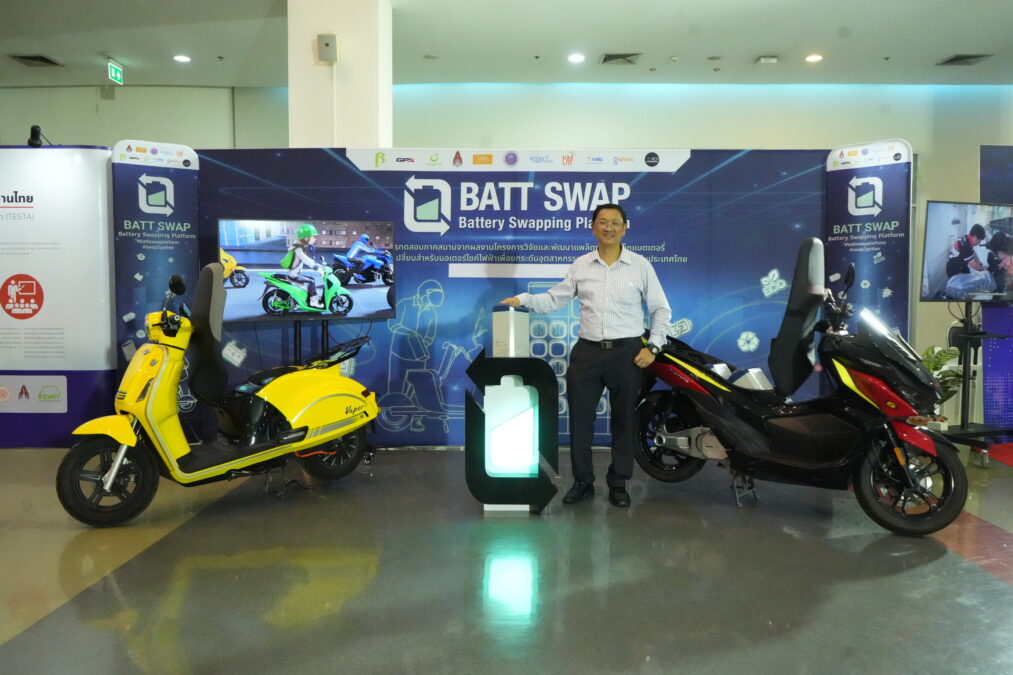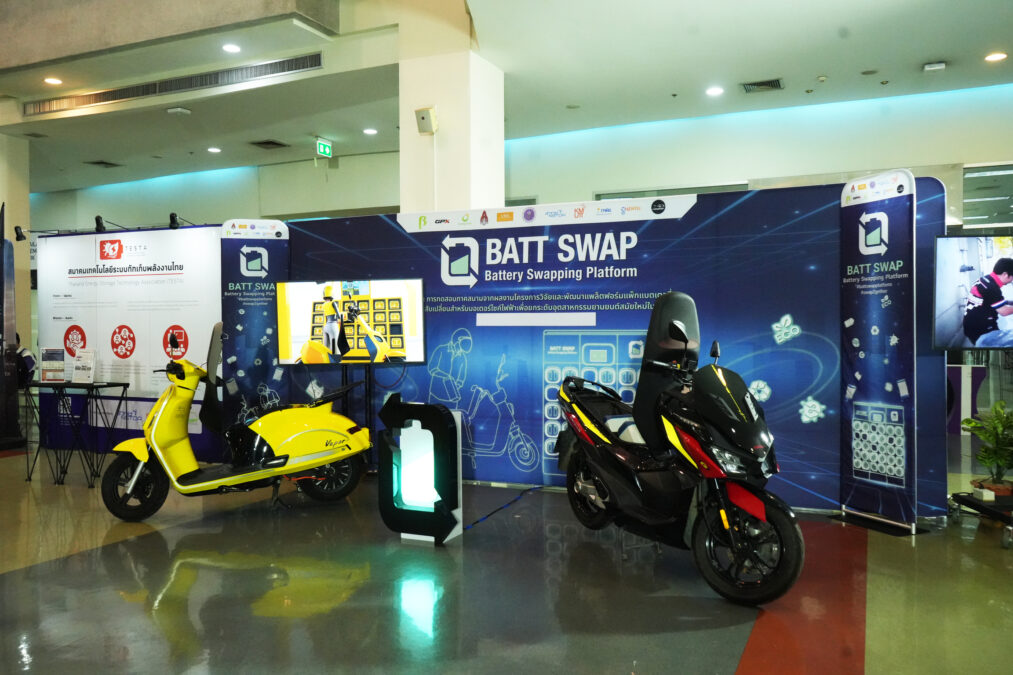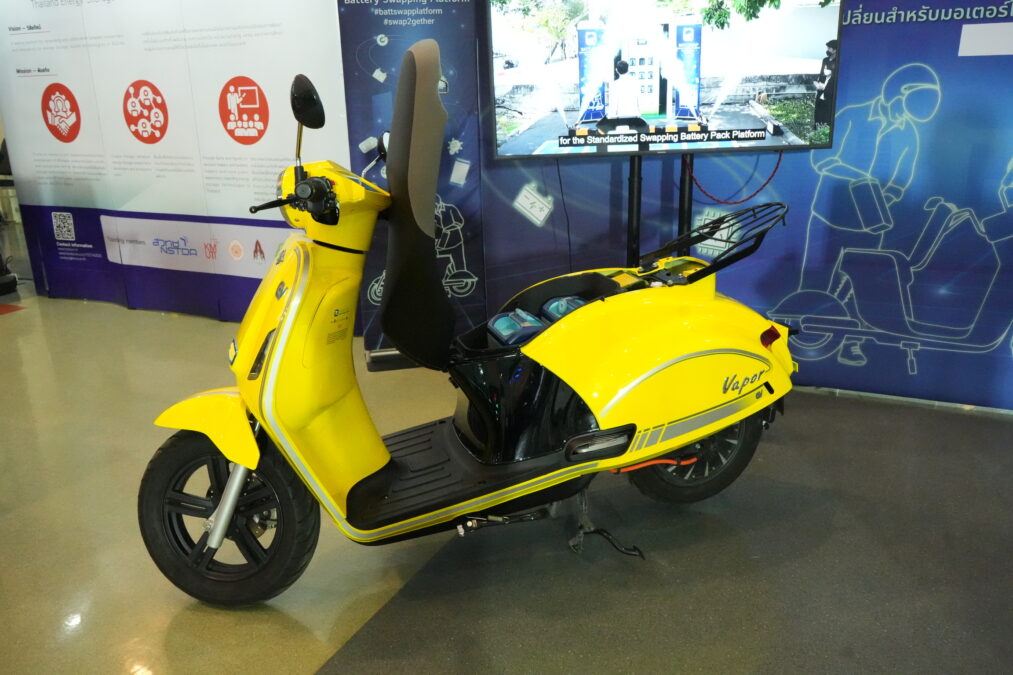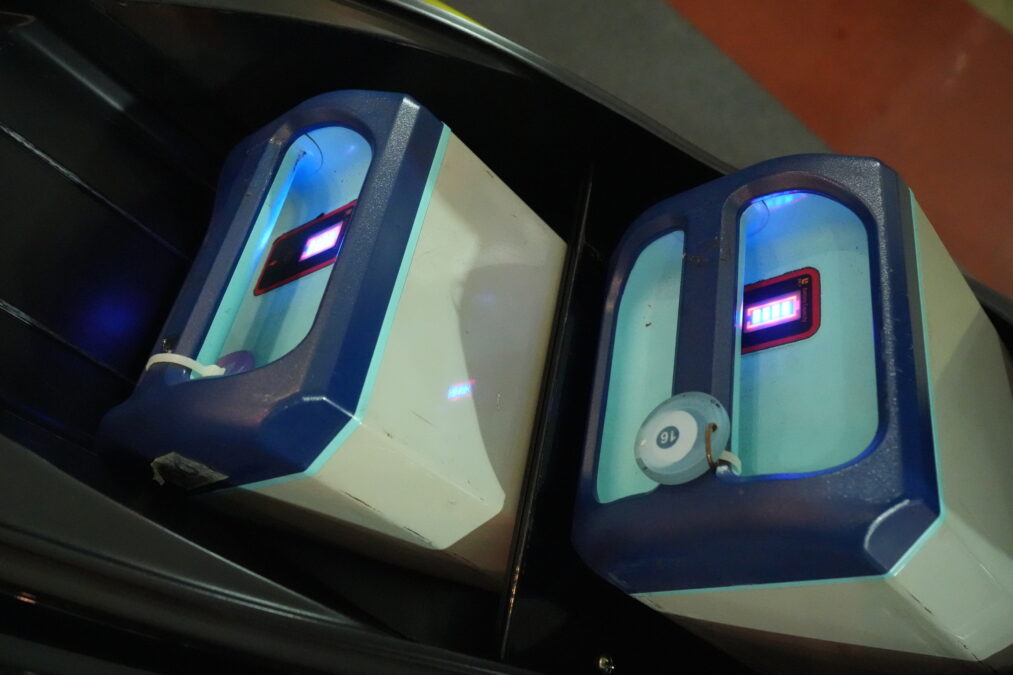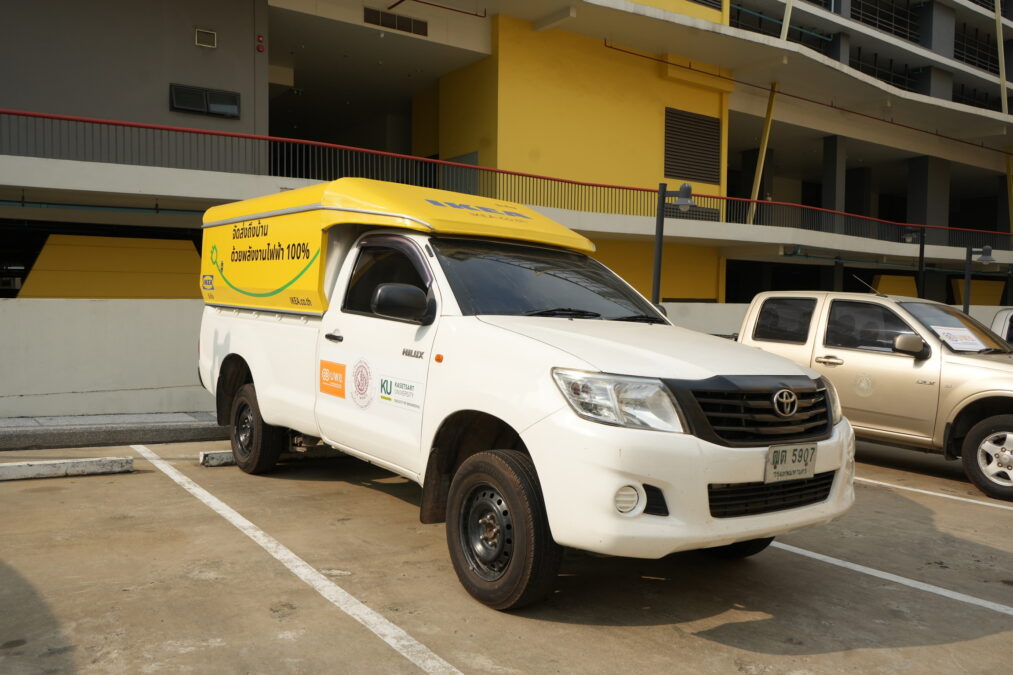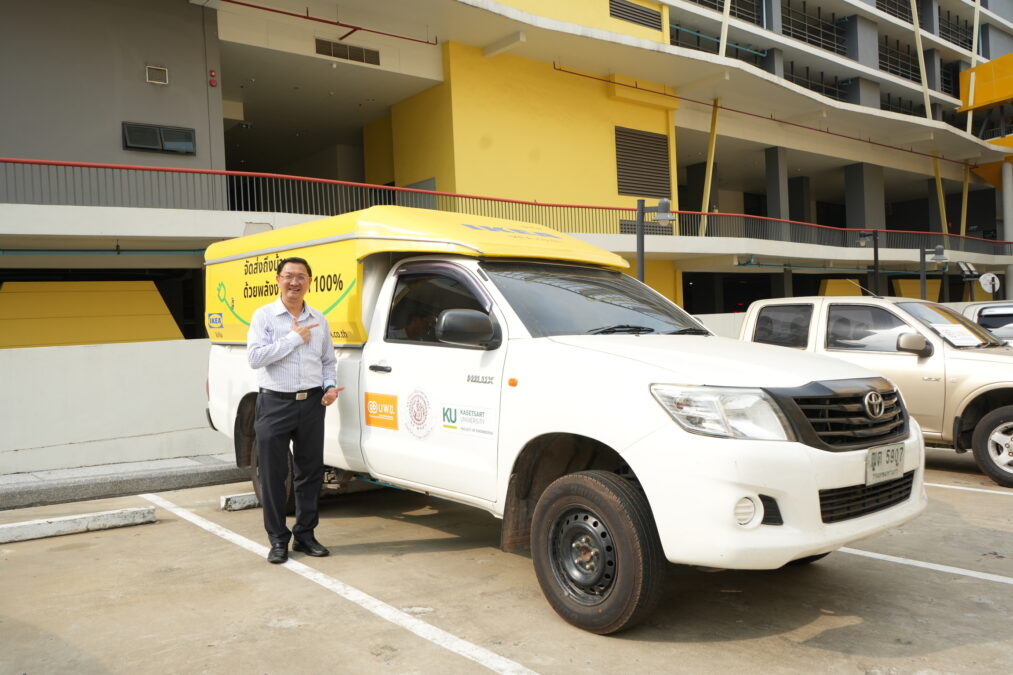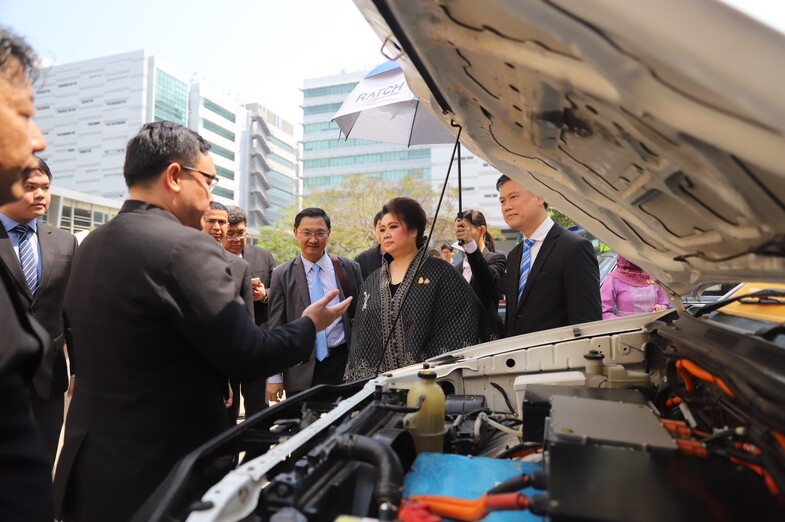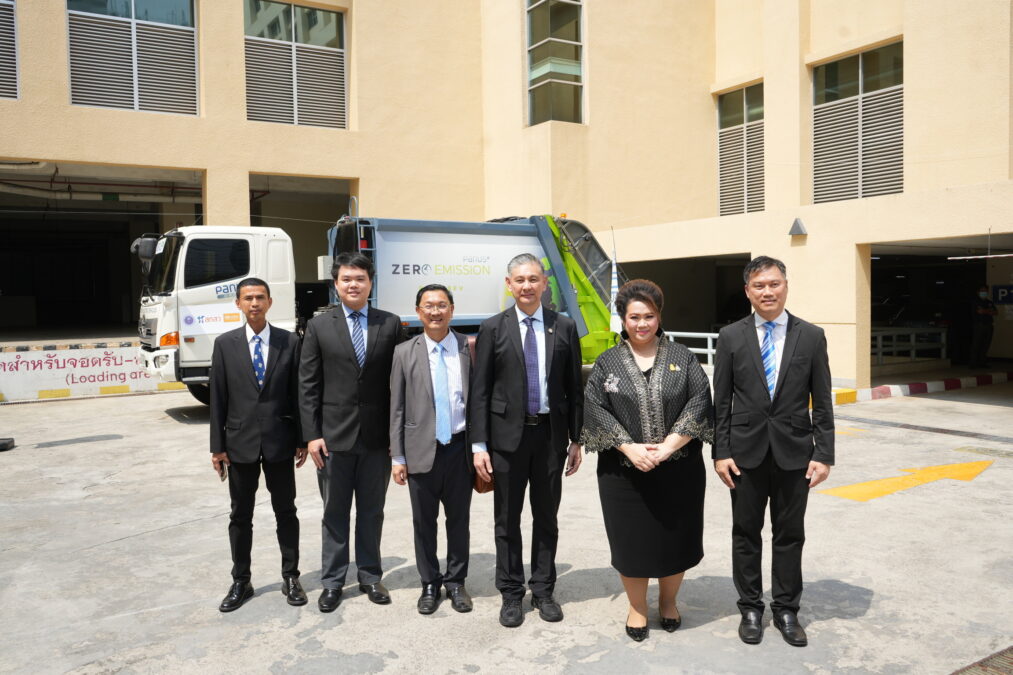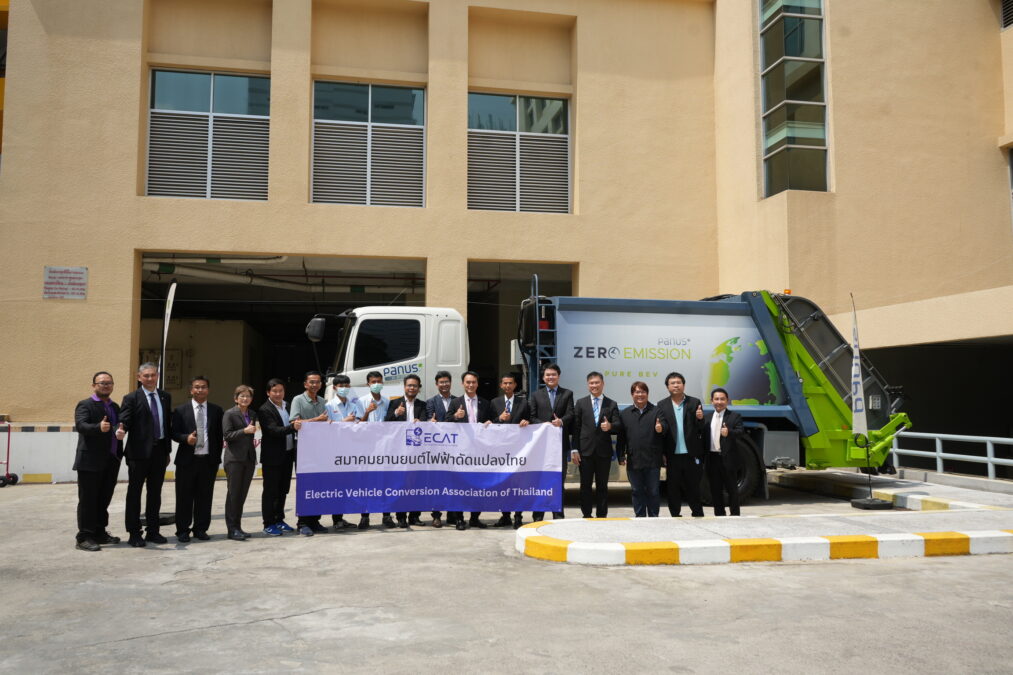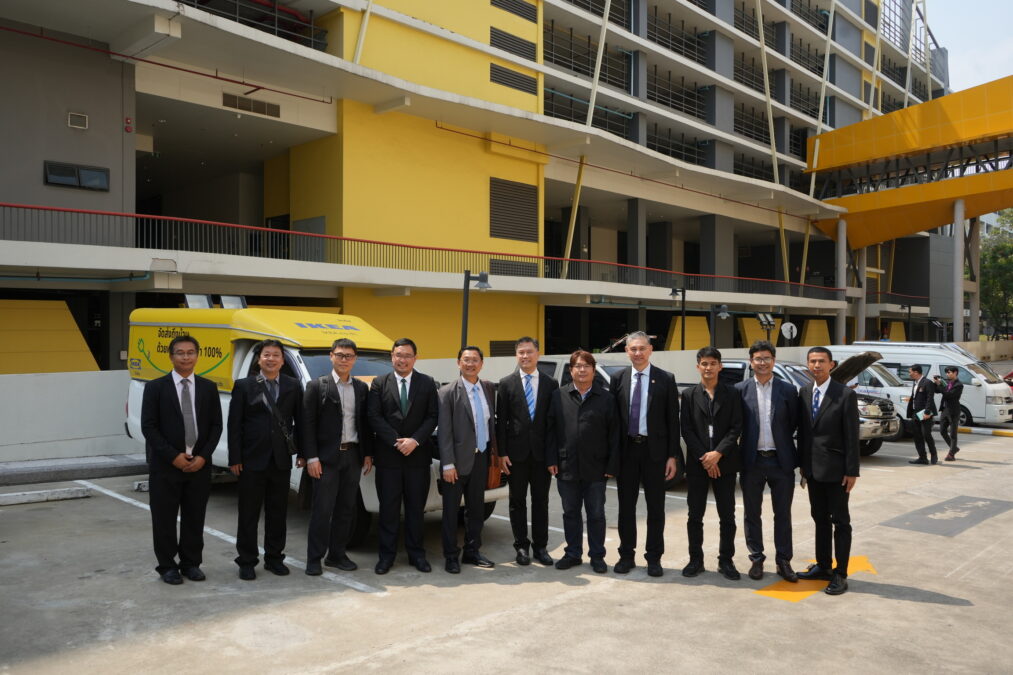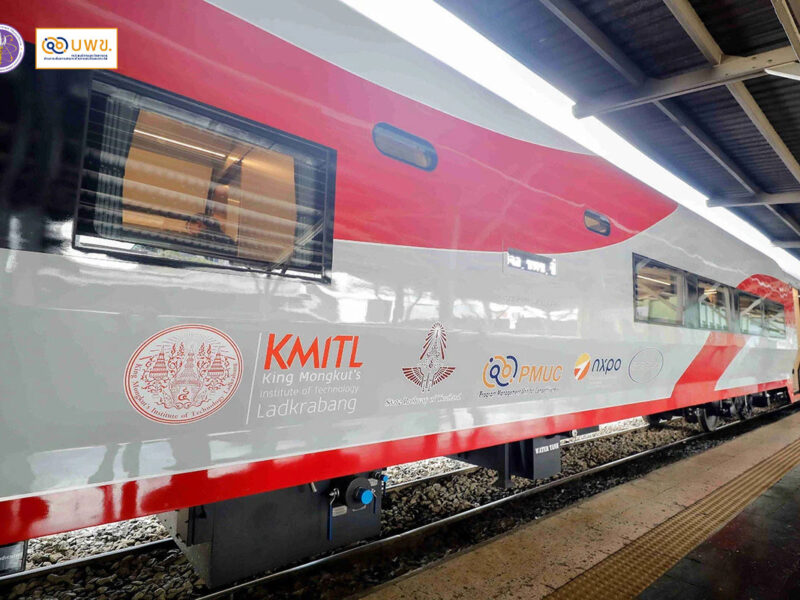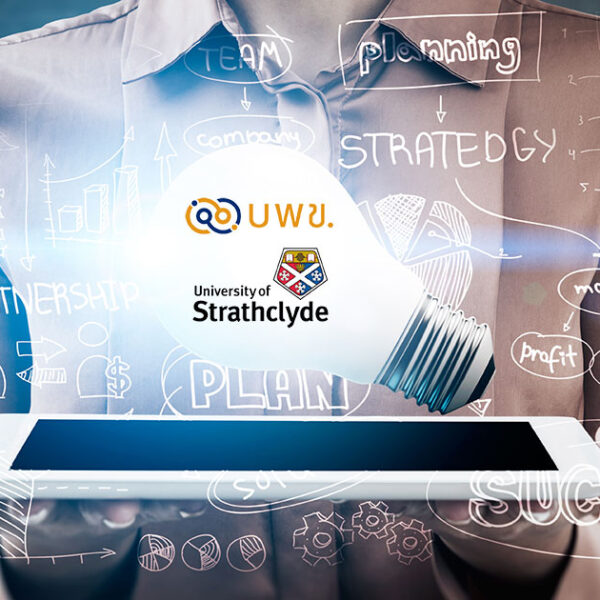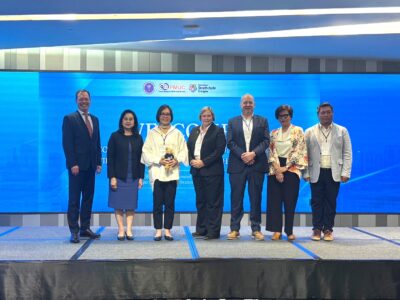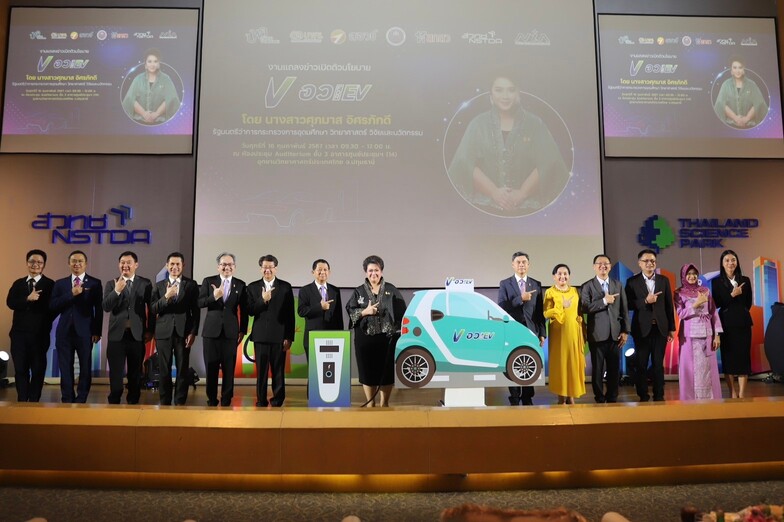
Program Management Unit for Competitiveness (PMUC)under the Ministry of Higher Education, Science, Research and Innovation (MHESI), led by Assoc. Prof. Thongchai Suwansichon, Ph.D., Director of PMUC, together with NSTDA, NXPO, and PMU-B, organized a press conference on the “MHESI For EV Policy,” led by Ms. Supamas Isarapakdee, Minister of the MHESI, in her capacity as a member of the EV Board, to advance the Electric Vehicle (EV) Ecosystem development plan and support EV research funding systemically to elevate the country’s electric vehicle industry. In this event, PMUC exhibited modified electric vehicles under research funding support from PMUC. The event took place at the Auditorium, 3rd Floor, Thailand Science Park.
Following Prime Minister Setha’s directive to appoint the Minister of the MHESI to the EV Board recently on February 16, 2024, Miss Supamas Isarapakdee, Minister of the MHESI, announced an immediate advancement of the national electric vehicle ecosystem development plan. This plan includes the acceleration of three initiatives:
- EV-HRD: Developing human resources skills for the electric vehicle industry.
- EV-Transformation: Transitioning from Internal Combustion Engine (ICE) vehicles to EVs in universities and ministries.
- EV-Innovation: Supporting research and development to foster innovation in EVs.
The goal of the “MHESI For EV” policy in promoting the automotive industry in Thailand is to make Thailand the largest EV Hub in the Asia-Pacific region and to ensure that at least 30% of all vehicles produced in Thailand are Zero Emission Vehicles (ZEV) by 2030 (B.E. 2573). The PMUC and TSRI play a key role in funding and supporting EV-Innovation research and development to elevate the country’s electric vehicle industry. This is achieved by refining the science, research, and innovation (SRI) plan to drive the electric vehicle industry as a major flagship of the SRI Promotion Fund and increasing investment in research and development of electric vehicle technology and key components.
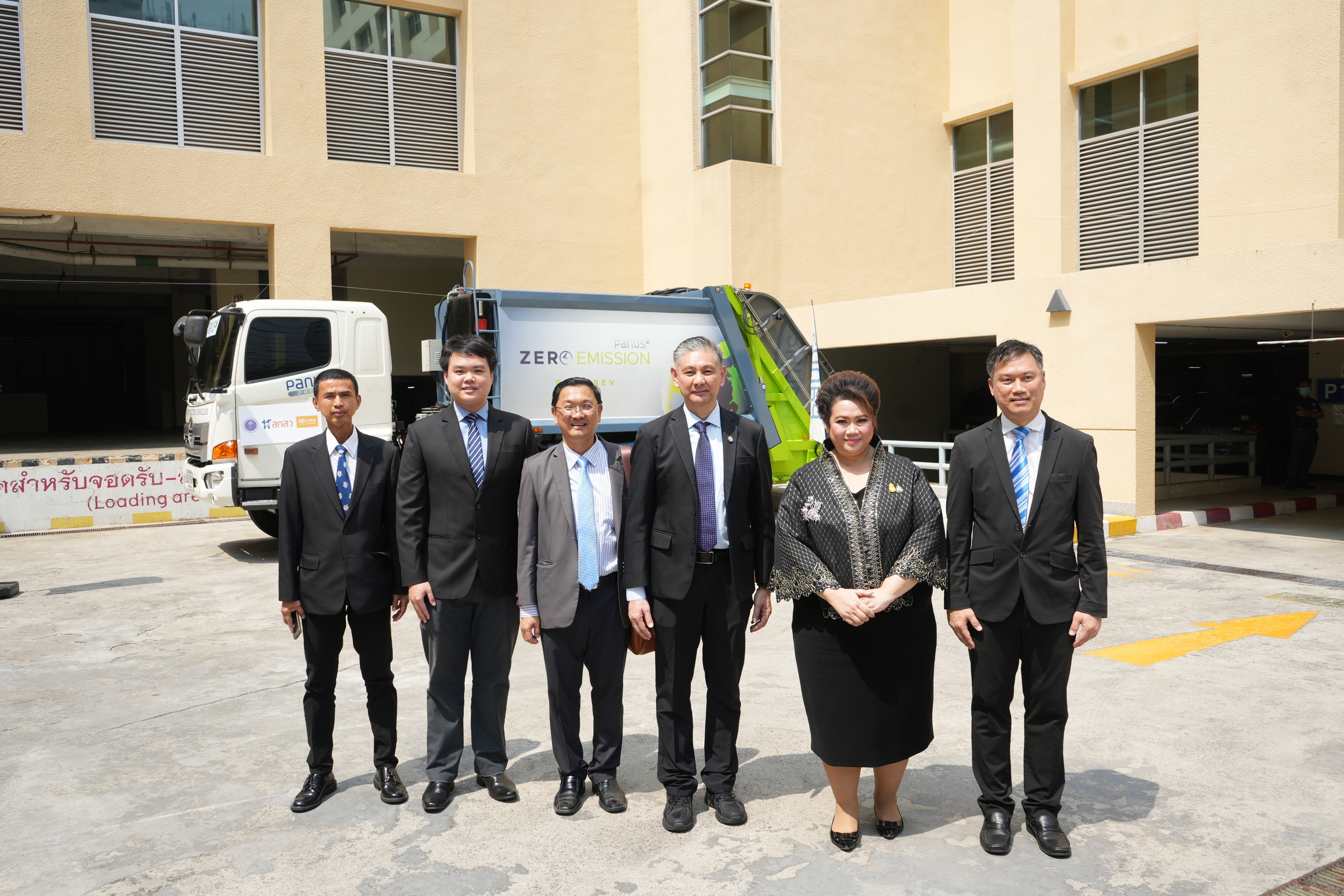
The budget support mechanism for electric vehicle research and development by MHESI:
- EV Infrastructure & System Integration: Development of critical electric vehicle infrastructure and components, such as battery charging stations and improving battery efficiency to store more energy and charge faster.
- EV Solution Platform: Development of applications for booking battery charging slots, finding the nearest charging stations, or developing battery swapping systems, focusing on management for user convenience.
- Specific Autonomous & Connected Vehicles: Since Thailand faces tough competition in the passenger EV industry, the focus should be on buses, minibuses, or electric motorcycles, as well as developing future technologies like autonomous driving to enhance driving efficiency and safety.
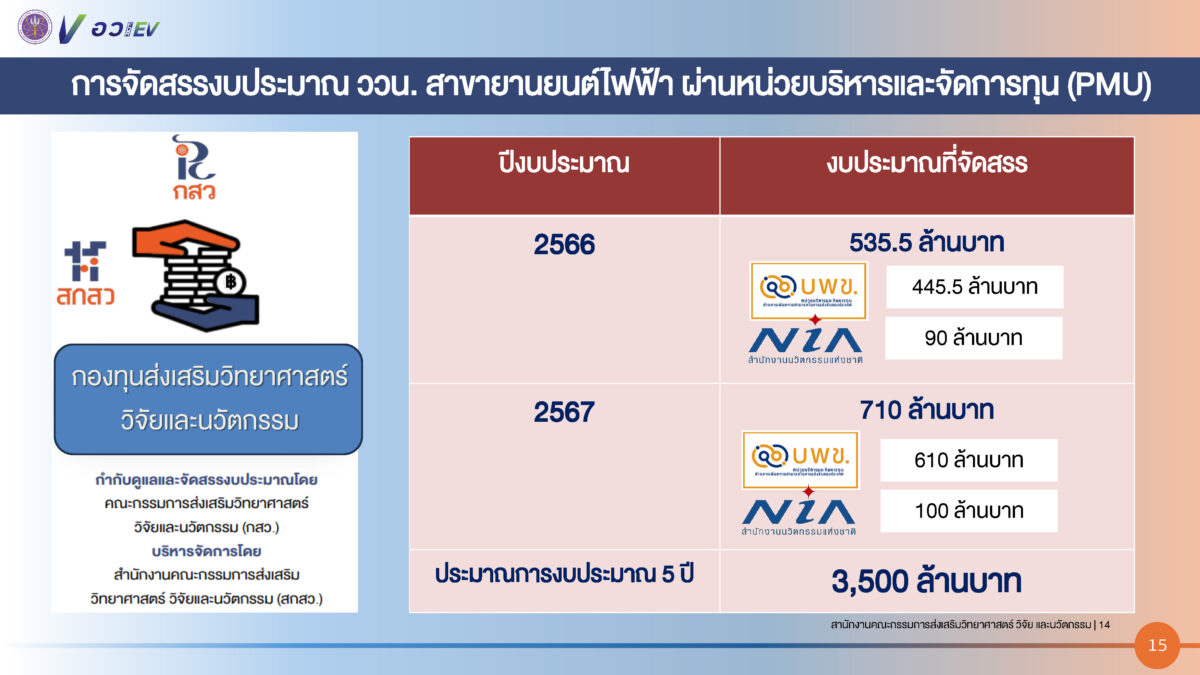
Budget Allocation for Electric Vehicles in 2023
In 2023, PMUC received a budget allocation from the SRI Fund of 445.5 million baht for the electric vehicle sector, and in the fiscal year 2024, the budget was increased to 610 million baht. The funding supports the development of the electric vehicle industry and related technologies as follows:
1. Research and Development of Technology Prototypes Related to the Electric Vehicle Industry
– This includes land, water, and air vehicles (e.g., electric motorcycles, electric boats, electric buses, electric trucks, autonomous driving systems, aircraft, unmanned aerial vehicles) and the development of component prototypes, battery packs, motors, and air conditioning systems in electric vehicles.
2. Research and Development to Increase Technological Value in the Electric Vehicle Industry and Related Industries
– This involves developing product or process standards to achieve international recognition or international standards.
3. Research on Design and Development of Production Processes or Related Technologies
– The technologies should be at least at TRL8 (Technology Readiness Level) and capable of advancing to TRL9, with private sector in-cash co-investment of no less than 50% of the project funding.
Research Scope in Electric Vehicles by PMUC
1. Development of internationally recognized technical and safety standards for products.
– This is alongside the development of technologies such as safety in electric charging.
2. Design and Development of Prototypes (Prototypes)
– These prototypes must pass product performance and/or safety tests.
3. Design and Development of New Systems/Processes or Products
– These new products should be ready for use, capable of being produced in Thailand, practical, and ready for commercial expansion. This includes presenting a comprehensive feasibility study covering market, technical, and financial aspects.
PMUC is ready to support the development of the electric vehicle industry and related technologies to elevate technology levels, enhance the competitiveness of the country’s electric vehicle industry, enable Thailand to be self-reliant, and become the production hub of ASEAN.
